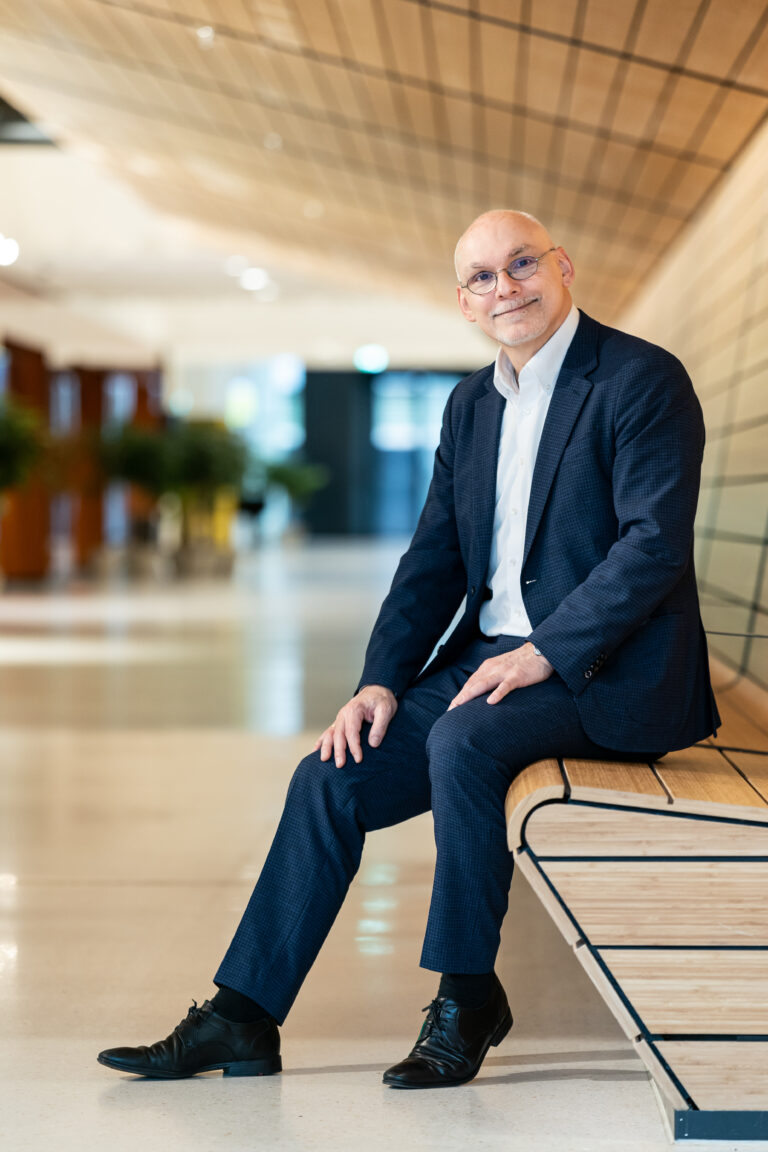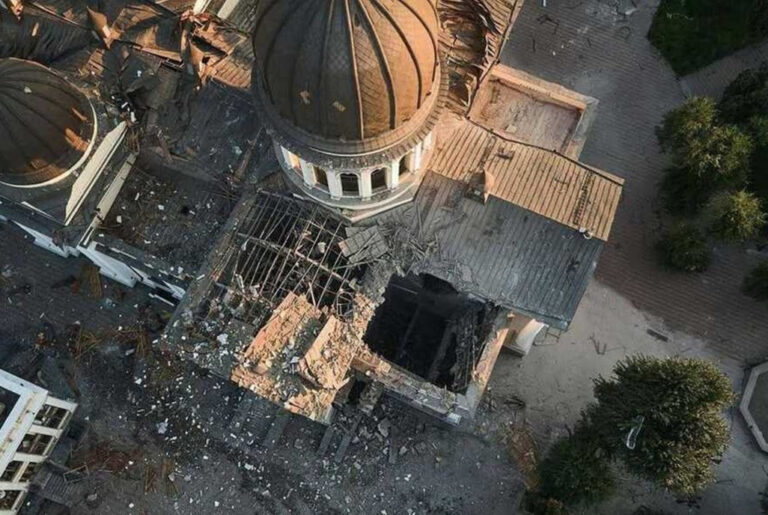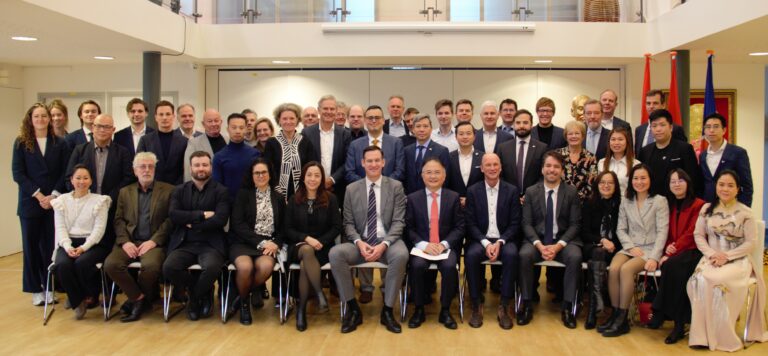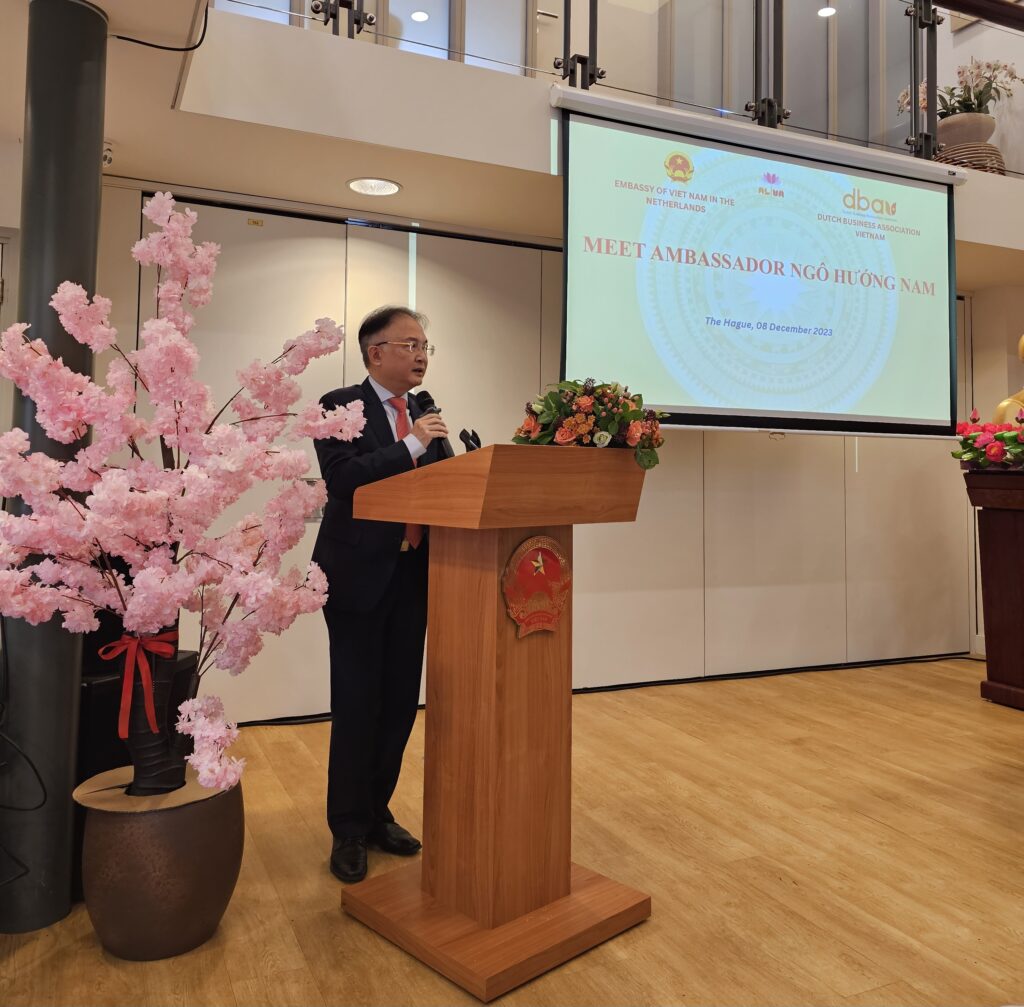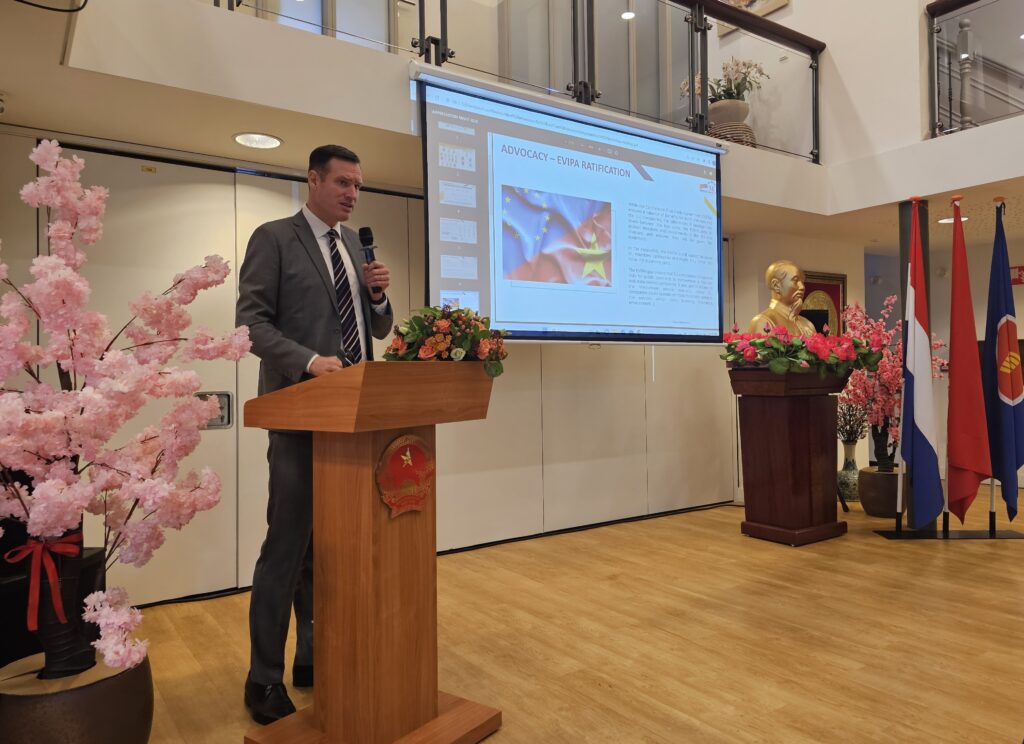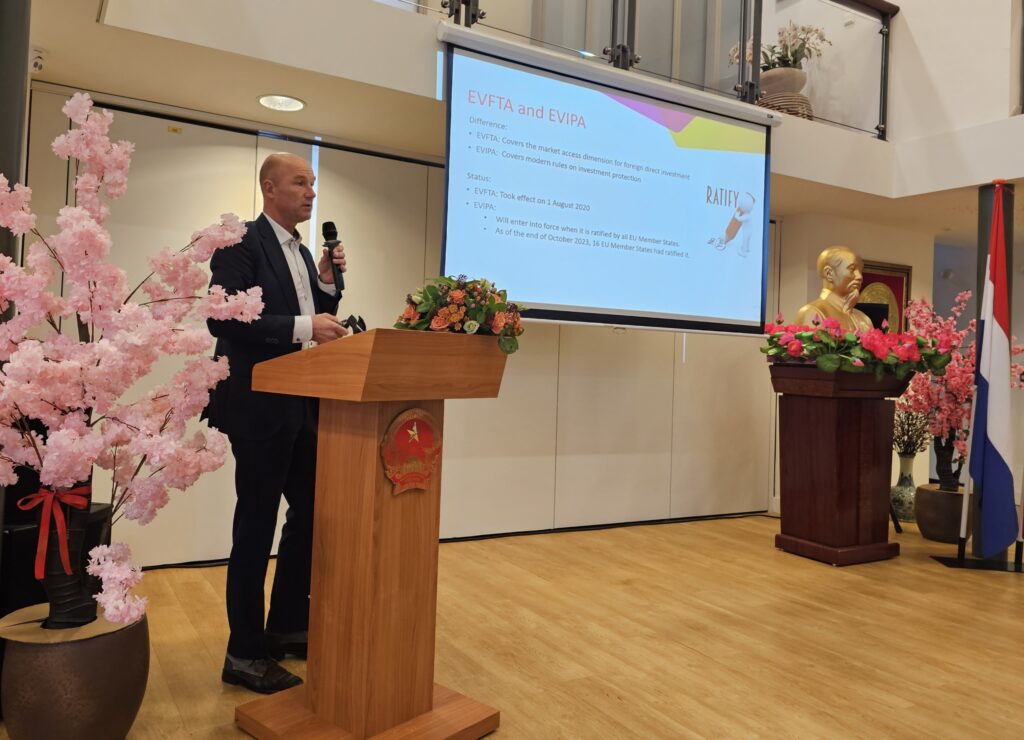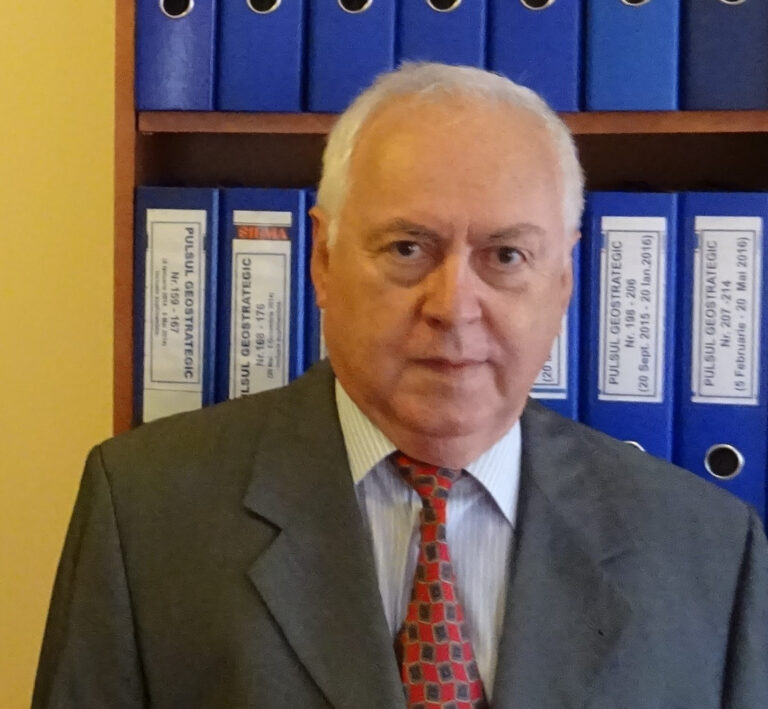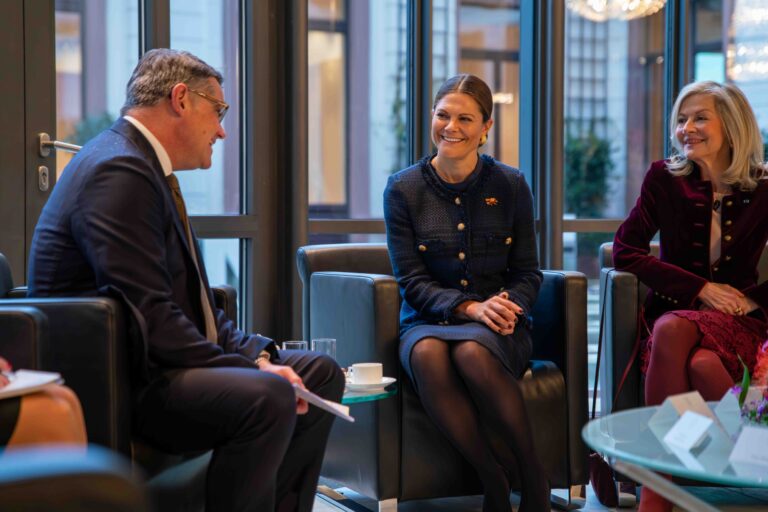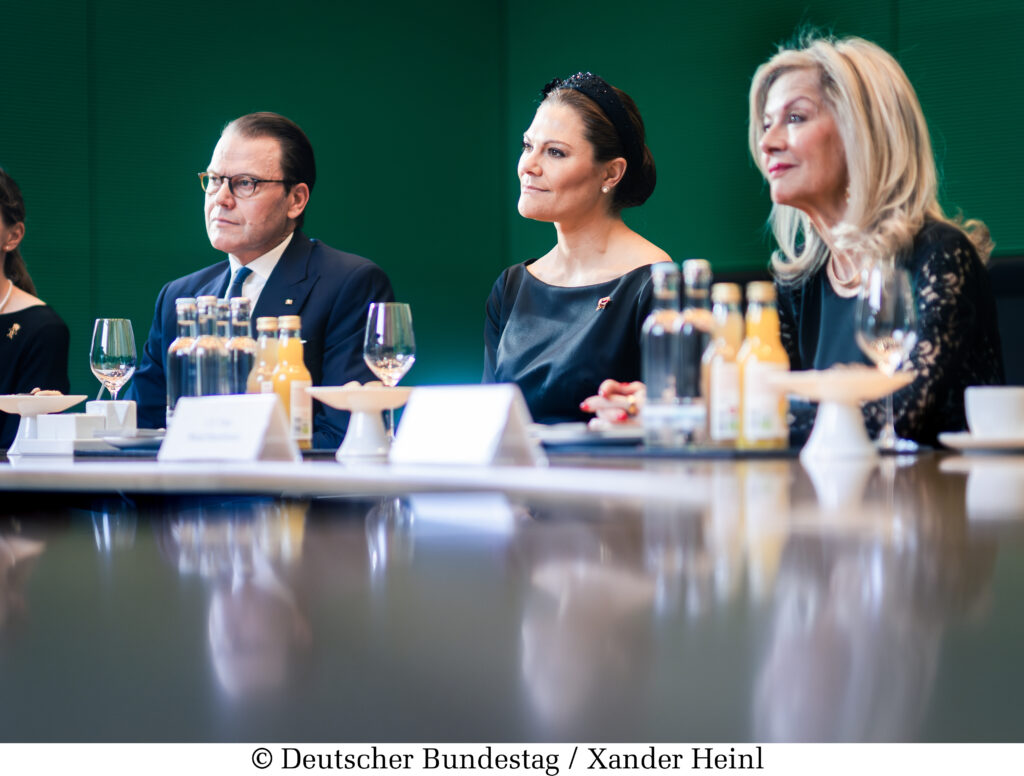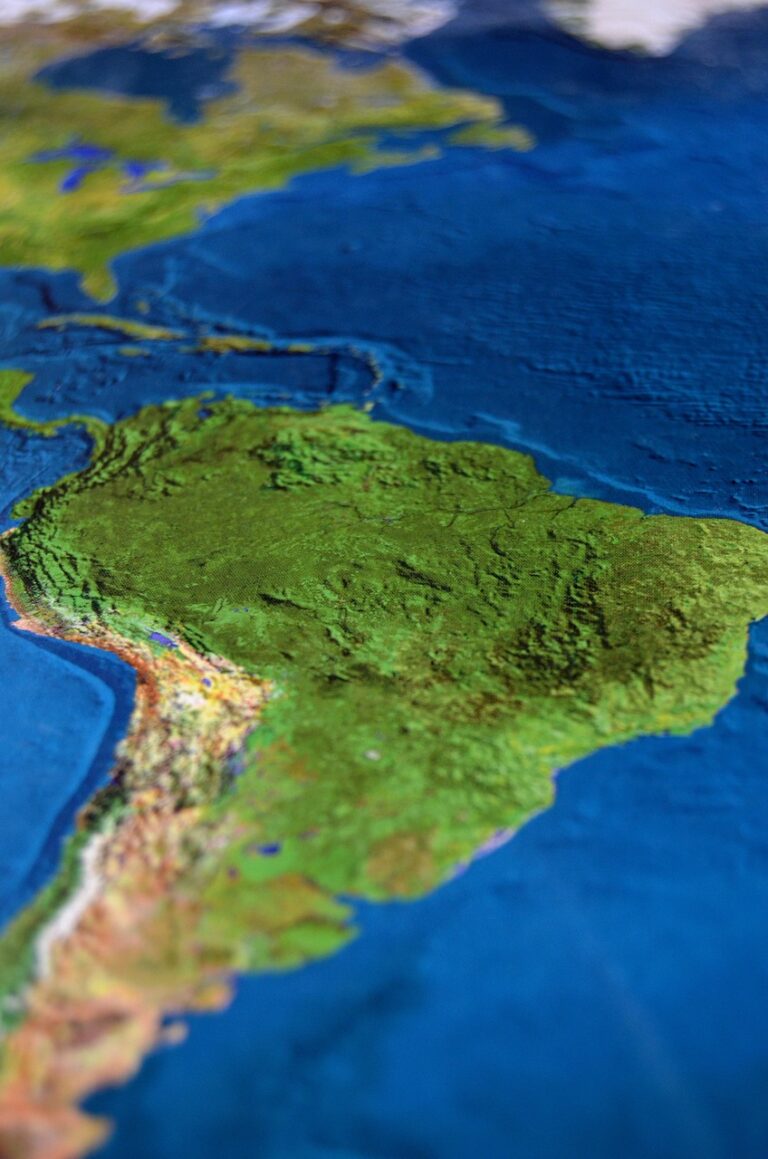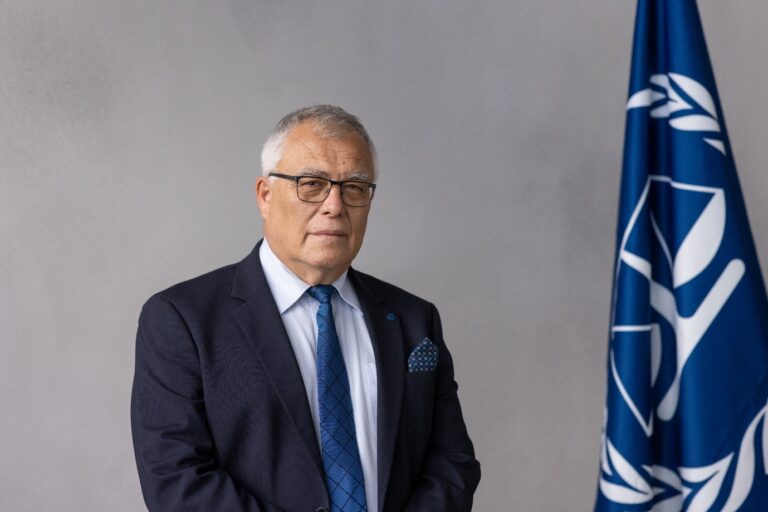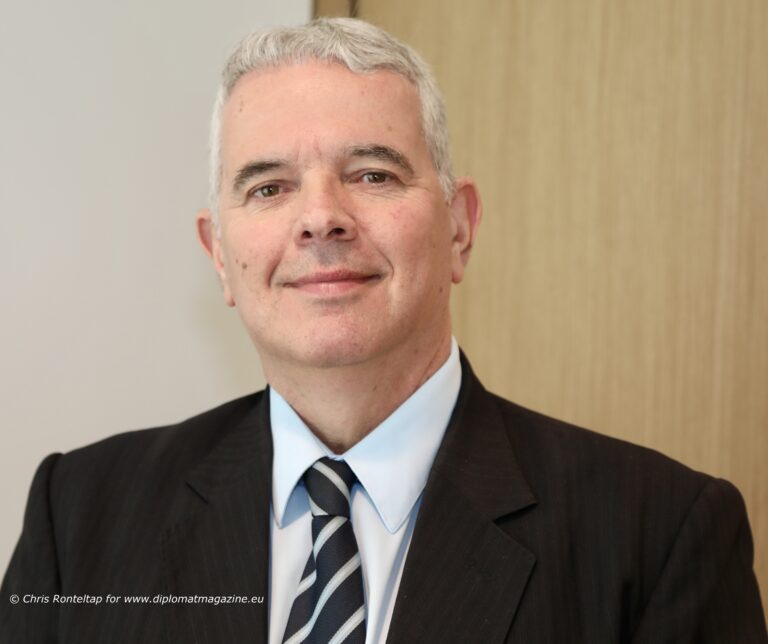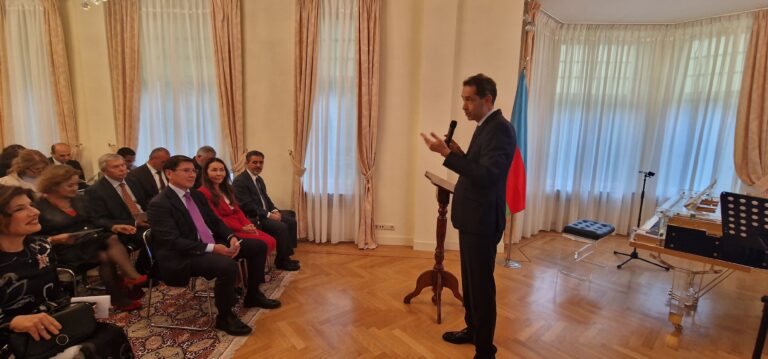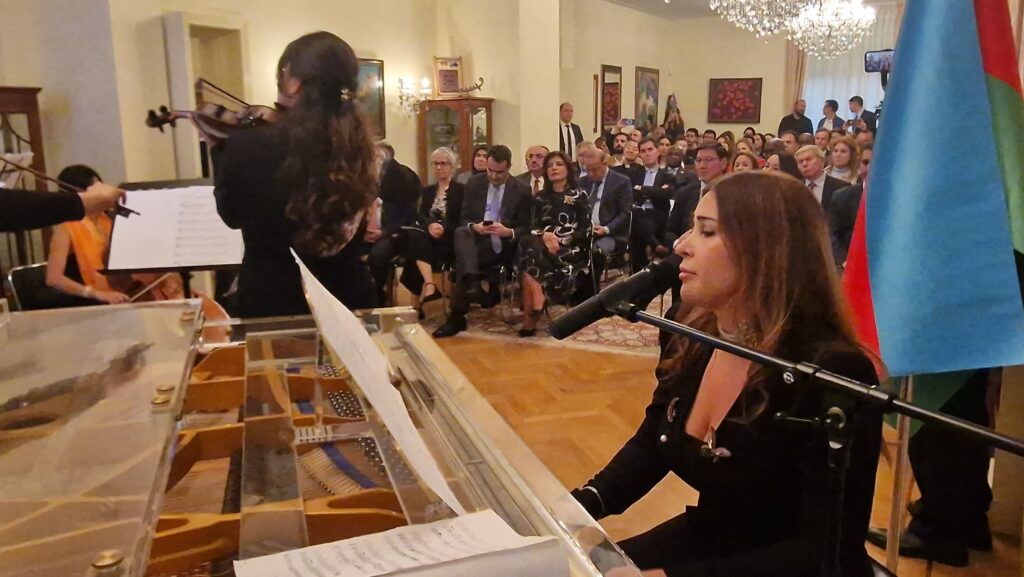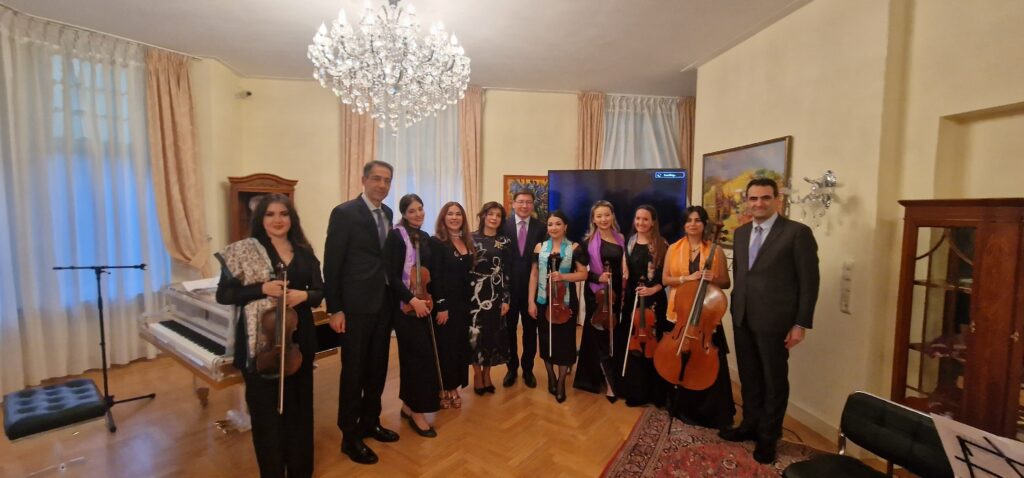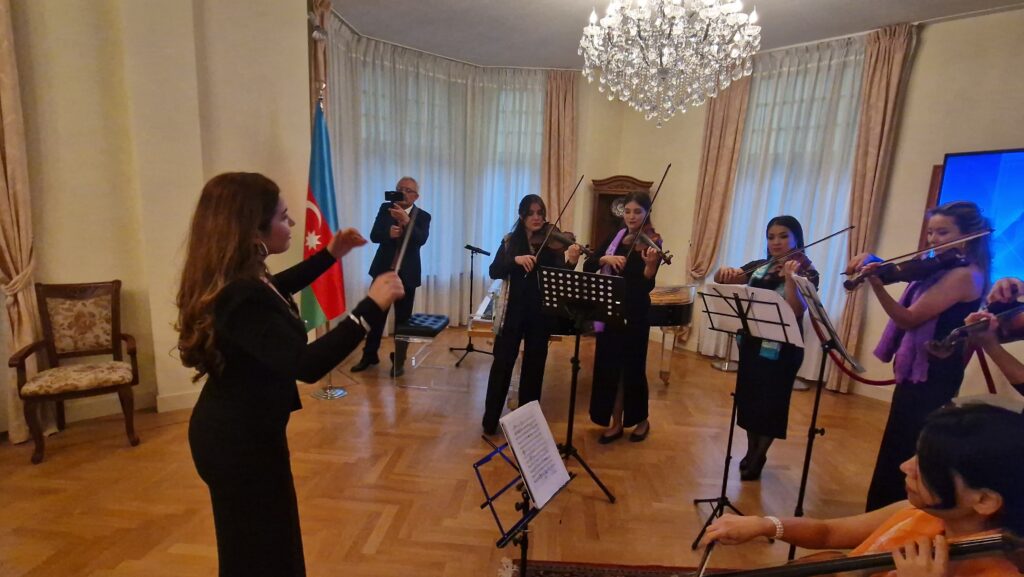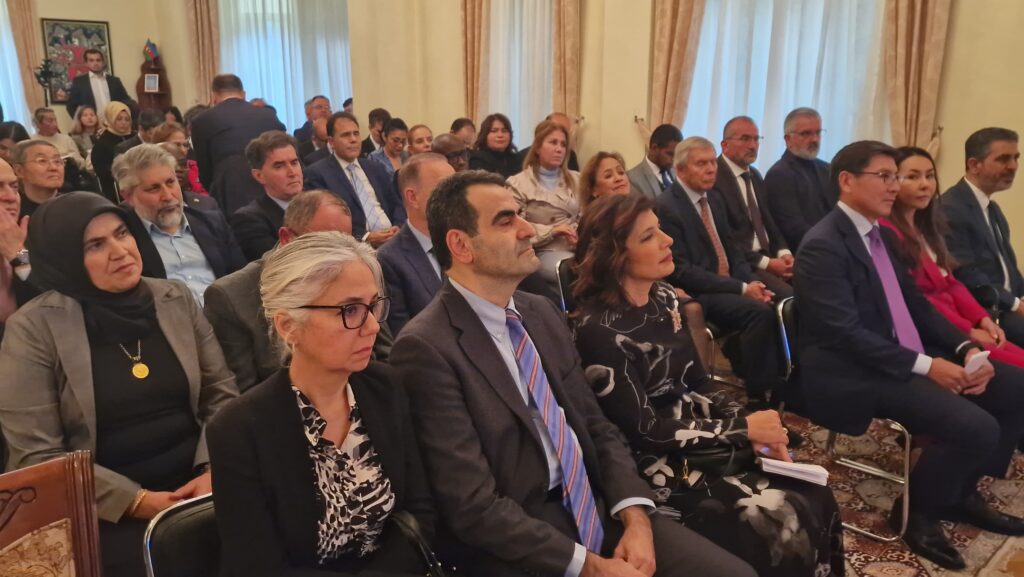Perspectives on Evolution
“The only path to a secure and peaceful future for the people of the Middle East and the entire world—for the Jewish, Christian, and Muslim populations alike—begins with the belief that every human life holds the same value and concludes with two states, Palestine and Israel, sharing the land and peace, from the river (Jordan) to the sea.”
King Abdullah II of Jordan, speech at the Peace Conference, Cairo, October 21, 2023
By Corneliu Pivariu
In the mid-1980s, having already spent several years in a Middle Eastern country, I sent an analysis of the evolution of the Palestinian issue to my home country. I concluded that it would take decades for this issue to see resolution. Subsequently, I faced severe criticism for this opinion (I recall that during that period, Romania was, at the highest level, an intermediary/mediator in Israeli-Palestinian and Israeli-Arab peace negotiations).
As we approach the middle of the 21st century, my opinion from back then has proven correct, and I could even say that the Palestinian problem is still far from finding a swift resolution. I believe, without speculating too much, that the middle of this century will see the Palestinian issue incompletely resolved, even if I personally may not witness the confirmation of this assessment. How can a situation that has been treated the same way for over 70 years, namely through wars, progress towards a solution? To understand the situation and developments in the Middle East, especially regarding the Palestinian issue, one should start with the famous Balfour Declaration[1]. What do we observe after the establishment of the State of Israel in 1948 and the subsequent wars? All attempts, more or less sincere, to find a viable solution to the Palestinian problem have collided with irreconcilable positions from both sides.
If, by the end of the 20th century, the situation, though complex, was somewhat simplified by the existence of the Cold War and the two societies, capitalist and socialist, the collapse of the socialist system further complicated the global situation. We are witnessing a conflict unfolding amid the competition between the “Collective West” and the “Global South,” with the added interests and influences of the so-called “Big 5”[2]. The emergence and development of Artificial Intelligence (AI) further complicate this evolution, especially as a nationalist/sovereigntist trend, alongside the far-right, is timidly emerging and is estimated to represent approximately 10% of the current global electorate.
How can a conflict be resolved when, for over 70 years, the only solution employed, with the same results, is the use of force? The proposition and solution of two states, Israel and Palestine, towards which the situation seemed to be evolving after the Oslo Accords[3], entered a shadow, during which Israel continued its policy of developing new settlements in the occupied territories, concurrently preventing a unified action by the Palestinians (the creation of HAMAS[4] in 1987 aligns with this direction). Only after the tragic events of October 7, 1987, triggered by the terrorist actions of Hamas in Israel, did the issue of the existence of the two states, Israel and Palestine, resurface more strongly in the Arab and international community, supported declaratively by U.S. President Joe Biden and numerous other heads of state.
It would be incorrect and unproductive to begin analyzing the Israeli-Palestinian conflict only from October 7, 2023. History is long, but it should be noted that, regarding Gaza, after its evacuation by Israeli forces in 2005, major clashes occurred in 2006, 2008, 2012, 2014, and 2021, involving Israeli airstrikes, Palestinian rocket attacks, and sometimes cross-border incursions by both parties, resulting in losses on both sides[5].
How was the terrorist action by Hamas on October 7, 2023, possible?
Gaza, a strip of land approximately 41 km long and with a width ranging between 6 and 12 km, totaling 360 km2, is one of the most densely populated areas in the world (about 2.2 million inhabitants, roughly 6,100 people per km2—compared to the global average of 54 people per km2). It is also known as the “open-air prison” since both land and maritime borders are controlled by Israel, with complete Israeli control over the airspace. Furthermore, the maritime space allowed for Palestinian fishing has continuously decreased, from 20 nautical miles (Oslo II Accords, 1995) to 12 nautical miles through the Bertini Agreement in 2002, and later limited to 6 nautical miles (11 km) imposed by the Israeli Defense Forces (IDF) in October 2006.
To protect itself from terrorist attacks originating in Gaza approximately 30 years ago, Israel began constructing a fortified line, continuously perfected, known as the “Iron Wall.” Currently, it consists of four zones: a first forbidden zone with a width of 100 meters ending with a simple barbed wire fence; a second 20-meter-wide zone that includes a patrol road and ends with a barbed wire fence with electronic sensors (Hoovers A); a third forbidden zone with widths between 70 and 150 meters, where numerous motion and seismic sensors are installed, ending with a 7-meter-high electronic sensor fence, extended underground with a concrete wall, constructed using 140,000 tons of reinforced concrete (Hoovers B).
A line of watchtowers, every 2 km, equipped with radar systems, cameras, and remotely controlled machine guns, complements this fortified line. In case of an attack, remotely controlled machine guns should have intervened first, followed by patrols in armored vehicles, which were supposed to repel the aggression[6].
Israeli media quotes a former spokesperson for the Israeli Defense Forces (IDF): “The entire system has failed. Not just one component, but our entire defense architecture has clearly failed, failing to provide the protection that Israeli civilians needed.”
It appears that Hamas managed to gather numerous pieces of information over time (some sources mention that the operation’s preparation lasted about two years[7]), using Palestinians with permission to work in Israel. Still, they also benefited from information received from Iran and even Russia.
A reserve Israeli general, in a private conversation, stated that after inspecting several military units during his active duty, he concluded that the Israeli army is not prepared for a surprise ground attack, being complacent and excessively reliant on technology. He emphasized that they had become too arrogant, spending more time with their mobile phones than with their weapons. His report, including these findings, submitted to the defense minister, was ridiculed. After October 7, the general was urgently reactivated.
I was somewhat surprised that over 1,500 Hamas militants (some sources mention around 3,000) penetrated quite deeply into Israeli territory, and especially that they resisted, in some places, for more than 48 hours against the Israeli army’s attacks.
As a brief conclusion of the first stage of the 2023 Hamas-Israel conflict, it was possible due to Hamas’s well-prepared action, benefiting from external support. It also resulted from deficiencies at the intelligence services and the Israeli army, as mentioned briefly above.
Developments after October 7, after the Israeli army’s troop attack in Gaza until now. Short evolution predictions.
Hamas’s attack immediately ended internal political disputes in Israel and led to the formation of a war government. Prime Minister Benjamin Netanyahu declared that he would destroy and completely eliminate the Hamas organization and would not stop until achieving this goal. The second main objective is the liberation of all hostages captured by Hamas on October 7, 2023.
The Israeli government declared a state of war, and in the first week alone, they executed airstrikes, launching over 6,000 bombs in Gaza[8]; artillery strikes were also carried out, especially in the northern part of the Gaza Strip. The Israel Defense Forces (IDF) issued a warning to the civilian population to move to the southern part of the Gaza Strip, while Hamas ordered the population to stay put. On the evening of October 27, the actual ground attack began in northern Gaza, in multiple directions.
The 20 days from the Hamas attack until the Israeli troops entered Gaza represent the time needed for a well-prepared military offensive and less a delay due to international pressures on Israel to refrain from sending troops into Gaza.
The action in Gaza opens a new chapter in military history due to the specifics of combat actions, especially because of the network of tunnels built by Hamas, estimated to have a total length of about 1.000 km, going to depths even greater than 30 meters. Hamas transformed Gaza, especially the city of the same name, into a heavily fortified zone. At least hundreds of buildings (generally with 2-3 floors) have been fortified and interconnected by a web of tunnels containing depots, workshops, and barracks. These seemingly inhabited buildings have their ground floors and the first floor walled and mined. From the basement, stairs lead directly to the upper floors, equipped with embrasures for anti-tank missiles (tanks can only raise the cannon barrel by a maximum of 200, so they cannot hit above the first floor) and machine guns.
When Israeli armored vehicles enter the street, Hamas observation posts sound the alarm, and fighters emerge from tunnels to their combat positions. Upon reaching the desired location, the first and last vehicles are destroyed with explosives placed under the pavement, then open fire for a few minutes, before aviation or artillery intervenes. Afterward, the fighters retreat[9].
The Israeli army counters this tactic by applying the Mosul Protocol[10], a technique practiced for several years at the Tze’Elim training ground in the Negev Desert. Although Hamas has studied how Daesh was eliminated in Mosul, and while the final result is quite clear – IDF’s success, the main unknowns revolve around the fate of hostages and the total number of civilian casualties[11].
After the temporary ceasefire expired, the Israeli army resumed bombings and attacks in the Gaza Strip. Starting from December 1, 2023, they asked residents of neighborhoods in the city of Khan Yunis (the second-largest in Gaza) to evacuate the area.
Until the present article’s date, the Israeli army has physically eliminated a significant number of Hamas military leaders and discovered and neutralized about 500 km of tunnels in the Gaza area. Recall that in the 2004-2005 period, the IDF also acted to destroy tunnels in the southern Gaza area, attempting to block the underground connection between Gaza and Egypt, known as the Philadelphi Corridor[12]. This time, Israel aims for the total destruction of Hamas, a goal it could achieve in large part, but not entirely. Certainly, the organization is likely to be severely affected and disappear for a few years from the political-military landscape of the Middle East, leaving deep traces in the consciousness of Palestinians in Gaza and beyond. The approximately 30,000 Hamas militants have families, so only the immediate relatives’ number could easily exceed 200,000. Israel is certainly aware that, in the next decade at least, it will have to confront about half of them.
Additionally, note that Israel has militarily acted outside the Gaza area, striking targets in southern Lebanon following attacks by the Lebanese Hezbollah. They also targeted the airports in Aleppo and Damascus on October 12, and on November 25, they hit the Damascus International Airport, which had just reopened, prompting its closure again.
There is a significant level of distrust between the two parties, beyond irreconcilable positions. For Israel, it is clear that only by demonstrating its ability to react forcefully can it ensure its survival, as it has succeeded in doing for over 70 years and will continue to do so. Additionally, maintaining the Palestinian and Arab world’s division will remain a significant political objective for Tel Aviv.
Regarding the Palestinian side and its supporters, they will continue to seek methods and opportunities to counter Israel’s extraordinary military and technological superiority, which I believe they will only achieve to a small extent. Currently, the Palestinians do not have a strong and unified political leadership, and the Arab world has not evolved to achieve unified action in support of the Palestinian people, which I don’t believe will be possible in the foreseeable future.
Israel’s military presence in Gaza will likely continue, at least in the first month of 2024, according to some sources, possibly until next summer, as the civilian casualties among the Palestinian population are alarmingly increasing. Israel will continue its policy, almost unhindered.
International context and main actions of major powers and regional powers to limit and cease the conflict
Why is this small area of a few hundred square kilometers so important, having no land connection with the other area under Palestinian Authority (the West Bank)? Israel was compelled and agreed to militarily withdraw from Gaza in 2005 but consistently acted to prevent it from coordinating with the Palestinian Authority. A clear example is Prime Minister Netanyahu’s statement[13] that, after the current conflict, he does not accept the Palestinian Authority taking control of the area.
Returning to the earlier question, I emphasize that the importance of the Gaza Strip lies in its geostrategic position and economic significance. Economically, it revolves around the discovery of the natural gas field near Gaza in 2002, known as the „Gaza Marine”. This field is located in Palestinian territorial waters at a shallow depth (approximately 610 meters) and is jointly administered by the Palestinian Authority, Israel’s Delek Drilling company, and Noble Energy from the USA. Some estimates suggest the field contains over 400 billion cubic meters of gas. On June 18, 2023, the Israeli government granted preliminary approval for its development, while simultaneously requesting security coordination with the Palestinian Authority and Egypt.
From a geostrategic perspective, its importance is derived not only from its access to the Mediterranean Sea (which would be more valuable if there were a land connection between Gaza and the West Bank) but also from its proximity to Egypt and the potential for creating an alternative maritime route to the Suez Canal, from the Gulf of Aqaba to the Mediterranean Sea[14], parallel to the current Israeli-Egyptian border.
The United Nations (UN) once again demonstrated its limitations and inefficiency. However, Secretary-General Antonio Guterres took decisive actions to seek a ceasefire in Gaza. The UN Security Council has not yet adopted a resolution calling for a ceasefire between Israel, Hamas, and its allies, prompting Guterres to invoke Article 99 of the UN Charter, allowing the Secretary-General „to bring any issue that, in his opinion, may threaten international peace and security to the attention of the Security Council”. Israel immediately expressed strong dissatisfaction with this initiative. It’s worth noting that since the end of October, the UN Secretary-General had warned that the situation in the Middle East was becoming increasingly serious, calling for an immediate ceasefire and cautioning that the conflict could spread to other parts of the region. “It is important to recognize, also, that the attacks committed by Hamas did not take place in a vacuum. The Palestinian people have been subjected to a suffocating occupation for 56 years,” said Guterres, adding that Palestinians “have consistently seen their land devoured by settlements and affected by violence.” At the same time, the UN Secretary-General specified that “the grievances of the Palestinian people cannot justify the horrifying attacks by Hamas”. On the other hand, he added that neither should the Palestinian people be collectively punished for Hamas attacks. Therefore, according to Guterres, all parties involved in the conflict should “exercise constant care in conducting military operations to spare civilians”.
As for the European Union (EU), a mid-November statement by the EU’s Commissioner for Foreign Affairs and Security Policy, Josep Borell, emphasized that “an horror does not justify another horror”. The presence of approximately 50 million Muslim immigrants in the EU compels Brussels to adopt a more balanced position. In a joint statement, France, Germany, Italy, Spain, and the United Kingdom called for an immediate cessation of violence and condemned rocket attacks on Israel.
Initially, the United States expressed support for Israel and called on Hamas to stop rocket attacks. However, Washington gradually nuanced its position, urging Israel to respect international law and mentioning that the solution to the conflict is the creation of two independent states, Israel and Palestine. To deter potential actions against Israel, Washington deployed a significant naval military group to the eastern Mediterranean[15], in the Gaza area (just above the Gaza Marine field).
China waited a day after Hamas attacks on October 7 before calling on relevant parties to cease the conflict and insisting on a two-state solution, without naming the Palestinian armed group. After the start of bombings in Gaza, Beijing categorized them as a form of collective punishment and insisted that Israel’s right to self-defense must respect international law and not be at the expense of innocent civilians.
Chinese Foreign Minister Wang Yi, who took over the presidency of the UN Security Council, urged the urgent establishment of a lasting ceasefire at the end of November, stating, “Peace cannot be limited, and a ceasefire cannot have an expiration date.” A day later, President Xi reiterated support for Palestinian aspirations for an independent state, saying, “The core of the Palestinian-Israeli conflict lies in the delay of the legitimate national rights of the Palestinian people to establish an independent state.”
Turkey condemned Israeli attacks in the Gaza Strip and called on the international community to take measures to end the violence. Turkey also sent humanitarian aid and announced that it would continue to provide humanitarian support to the Gaza population. It seems that Ankara has good relations with Hamas[16], which it has not designated as a terrorist organization. President Erdogan promotes a foreign policy in support of his domestic policies, but I noticed that he treats the situation of the Kurds differently.
Iran maintained its known position regarding Israel but distanced itself from the Hamas attack on October 7, implying that it occurred without its knowledge.
Qatar offered its good offices as a mediator in the Israeli hostages’ crisis and for the cessation of the conflict. Ismail Haniyeh, the leader of Hamas since 2017, resides in Doha.
Russia seeks to capitalize on this conflict to achieve its goals in the war with Ukraine.
Instead of conclusions
I haven’t analyzed religious, cultural, traditions, and customs issues here because the article would have turned into a book. A friend I collaborated with for over 15 years sent me some thoughts a few days after this new conflict in Gaza, which I found fitting to include at the end of this article.
I have always wanted to believe that all people, regardless of religion and race, can have the same moral, intellectual, and empathic qualities.
I consider that family, environment, education, and, above all, each person’s personal experience shape and develop us in life, alongside the essential Providence (chance, coincidence, luck, destiny, etc.).
I am not an Islamophile, and I absolutely do not applaud foolish traditionalism, indoctrination, and fundamentalism in the name of any belief.
I find attitudes of moral and religious superiority ridiculous and dangerous (stupidity is never innocent!) from any “enlightened” believers across the religious or cultural spectrum.
In fact, just as any sane person rejects and condemns terrorist attacks, it seems natural not to degrade ourselves by justifying genocide or indiscriminate punitive violence, which is equally inhumane.
Everything happening in and about this conflict seems to be the ugliest and most worrisome mirror of the animal nature of man, who, after so many thousands of years of “evolution” and development, is almost the same, if not worse.
*
So, not out of pessimism, but from the conclusions that only an analysis based on “realpolitik” and not the much-proclaimed today “political correctness” can derive, I can say, without fear of being wrong, that the Israeli-Palestinian conflict is still far from finding a lasting solution after over 70 years, during which wounds on both sides have not healed, and new ones have even appeared.
December,10, 2023, Brasov-Romania
[1] On November 2, 1917, amid the chaos of the First World War, British Foreign Secretary Lord Balfour publicly announced a letter proposing the establishment of a “Jewish national home” in Palestine.
[2] Under this designation, the most important multinational corporations are grouped in the fields of finance (Big Finance), technology (Big Tech), media (Big Media), military (Big Mill), and medical/pharmaceutical (Big Pharma).
[3] Signed on August 20, 1993, the agreements stipulated the establishment of the Palestinian National Authority (PNA). The Palestinian Authority was to be responsible for administering the territory under its control. The agreements also called for the withdrawal of Israeli Defense Forces from parts of the Gaza Strip and the West Bank.
[4] HAMAS is the Arabic acronym for the “Islamic Resistance Movement,” and in translation, HAMAS means enthusiasm. For details about the organization, see Corneliu Pivariu’s “Terrorism – from Local Threat to Global Danger,” Pastel Publishing, 2005, pages 117-123.
[5] In total, from 2008 to 2023, approximately 6,500 Palestinians and 308 Israelis lost their lives. In the clashes of 2014, about 2,400 Palestinians and 89 Israelis died. The conflict that erupted on October 7, 2023, resulted, as of December 10, 2023, in over 17,000 Palestinians and about 1,800 Israelis killed (approximately 1,200 civilians in the early days of the Hamas attack and around 600 military personnel, with about 340 killed in the initial Hamas attack)
[6] For more details, see the article “How the Iron Wall was Pierced” by Tudor Păcuraru.
[7] On December 2, 2023, The New York Times published an article titled “Intelligence Errors Prompt Scrutiny of Israeli Generals, but Little Backlash,” stating that the Israeli army obtained a roughly 40-page document about Hamas’s actions a year before the October 7 attack but did not consider it. Additionally, in July 2023, a commander also dismissed a subordinate’s warning that the group was exercising and building its capacity to implement the plan.
[8] In comparison, the U.S. dropped about 7,400 bombs in Afghanistan throughout the entire year of 2019.
[9] This tactic was not new; it was successfully used by Al Qaeda in the battles of Fallujah in 2004.
[10] The Mosul Protocol (2016-2017) countered the tactic used in Fallujah with a multi-step strategy: isolating the battlefield to prevent external assistance (ammunition, food, equipment, information); continuous bombardments for an extended period, leading to psychological effects and delayed reactions of fighters; systematic destruction of fortified buildings (demolition by implosion, penetrating 3-4 floors and exploding on the ground, causing floors to collapse and block access and ventilation of underground structures); ground penetration; fragmentation; liquidation.
[11] Out of approximately 250 hostages held by Hamas, 110 have been released as of the date of this article, most during the temporary ceasefire from November 24 to 30, 2023, as a result of negotiations by Qatar, Egypt, and the U.S. The remaining 125 are still in Gaza. In return, Israel released 240 Palestinians (including 107 children). According to Al Jazeera, for every Palestinian released, Israel has arrested at least one other Palestinian.
[12] See also Corneliu Pivariu’s “Current Geopolitics Uncovered in 200 Episodes,” Pastel Publishing, 2011, pages 288-289.
[13]“I will not make the mistake of allowing the PNA to govern in Gaza because it will be the same” as Hamas, said the Israeli Prime Minister in a televised press conference in November 2023, advocating for a “new vision, a change” in the Palestinian enclave involving “Israeli security and control.”
[14] The “Ben Gurion Canal” project, dating back to the 1960s, which would be about 90 km shorter than the Suez Canal, is still in the planning stage.
[15] Two aircraft carriers, USS Gerald R. Ford and USS Dwight Eisenhower, with over 150 fighter planes on board, the respective groups’ escort ships, and an Ohio-class submarine (USS Panama) with 154 Tomahawk cruise missiles. It is the largest U.S. naval force deployed in the eastern Mediterranean since 1983.
[16] It appears that two sons of Hamas leader Ismail Haniyeh have close and significant business ties with Ankara.


